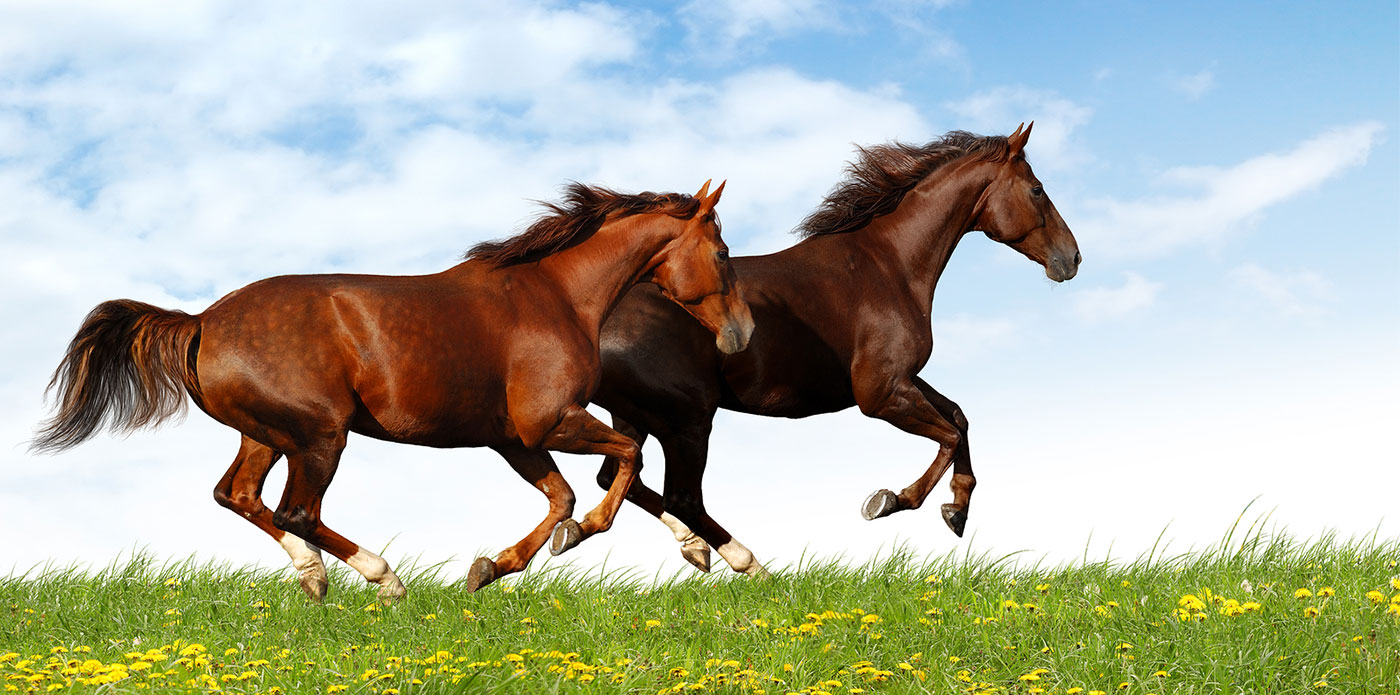
About Our Equine Reproductive Services
It's an exciting time when you decide to breed your horse. The process entails a bit more than you may realize if you want to ensure a healthy pregnancy. Redtail Equine Veterinary Service has state-of-the-art imaging to help monitor the entire gestation and has a comprehensive understanding of health concerns to monitor your horse from conception to birth.
General Information About Equine Pregnancies
Horses are seasonally polyestrus, this means they have mutilple heat cycles throughout the spring, summer, and early fall, but do not cycle over the winter. Determining when to breed requires knowing where your horse is in this cycle. Once your horse has been bred, we recommend an ultrasound at 14 days post breeding to confirm she is pregnant and make sure she doesn’t have twins (twins are undesirable in horses because they usually result in the loss of both foals and can be dangerous for the mare). Another ultrasound around 30 days allows us to check for a heartbeat, make sure the fetus is healthy, and ensure your mare hasn’t lost the pregnancy (which most commonly happens in the first 30 days).
Horses carry their foals for 11 months (though this can vary slightly horse to horse). Your mare will need several rounds of vaccination throughout her pregnancy to prevent abortion and to ensure the foal gets sufficient disease protection from the mare after he or she is born.
We offer services to monitor your horse's pregnancy and intervene, if necessary, to prevent complications from occurring. In most cases, a horse pregnancy doesn't have any complications.
Breeding Soundness Check
A soundness check is the first examination your horse will undergo when you decide to breed. This ensures your mare is healthy enough to breed. During this exam, Dr. Wood evaluates your mare's reproductive health through a trans-rectal palpation and a trans-rectal ultrasound. These help Dr. Wood view your horse's cervix, uterus, and ovaries.
Other tests that might be recommended include:
- uterine biopsy
- vaginal speculum exam
- uterine culture and cytology
All of these tests help identify issues that could interfere with a healthy pregnancy, such as infections, uterine cysts, and inflammation, among other problems.
About Artificial Insemination
Redtail Equine offers artificial insemination services. This process starts with the mare’s owner selecting the stallion they want to breed to and arranging a breeding contract.
Ultrasound is used to monitor the mare’s estrus cycle and determine when to breed. When the time is right the vet, mare’s owner, and stallion’s owner coordinate to get the stallion’s semen delivered. Fresh, cooled, or frozen semen can be used to inseminate the mare.
About Horse Pregnancy Monitoring
14 to 18 days after insemination, Dr. Wood should confirm if your horse is pregnant using an ultrasound. At this point, it’s also possible to tell if a mare is having twins. Twins are not desirable in horses and often result in abortion of both foals and are risky for the mare.
At 30 days, Dr. Wood can check for a heartbeat. And at around 57-60 days if desired Dr. Wood can check for the gender of your foal.
For high-risk mares, more extensive monitoring is necessary during the last few months of her pregnancy.
About Labor and Delivery
Labor has three stages. Stage one can last for 1-12 hours and consists of the mare getting increasingly uncomfortable as she starts to have small contractions. During this stage she may stop eating, get up and down frequently, urinate small amounts frequently, sweat, and act agitated.
Stage 2 starts as soon as the mare’s water breaks. At this point things will happen quickly. From the time her water breaks until the foal is on the ground should be less than 30 minutes. If 20 minutes or more have passed and your mare is not making progress, this is an emergency. Both the mare and foal’s lives may depend on rapidly getting help. Call us immediately if you have concerns.
Stage 3 is the time between when the foal is born and the afterbirth (or placenta) is completely passed. This can take up to 3 hours. If more than 3 hours have passed and the placenta is not completely out please call us. A retained placenta is a significant health risk for your mare.
While the mare is in stage 3 of labor, some very important milestones are happening for your foal as well. By 1 hour old your foal should be standing, by 2 hours old he or she should have nursed for the first time, and by three hours old the foal should have passed meconium (the first poop). If your foal is delayed in any of these milestones call immediately.

